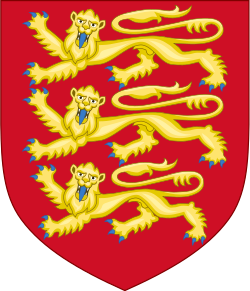English Devolution Bill
| This article is part of a series within the Politics of the United Kingdom on the |
 |
|---|
The English Devolution Bill is a proposed UK Government bill which will establish a new framework for devolution of powers to local government and combined authorities in England.
Background
Powers were devolved to varying degrees to Scotland, Wales and Northern Ireland by Tony Blair's Labour government in the late 1990s through the establishment of the Scottish Parliament, the Welsh Parliament and the Northern Ireland Assembly. A devolved legislature and government was not created for England, which remained under the full jurisdiction of the United Kingdom parliament and government based in Westminster.
A strategic local authority for Greater London, known as the Greater London Authority (GLA), was established in 2000. Plans for elected regional assemblies in the eight English regions outside Greater London were abandoned following an unsuccessful referendum held in the North East region in 2004. Instead, sub-regional combined authorities were gradually established, starting in 2011, under the terms of the Local Democracy, Economic Development and Construction Act 2009 and Localism Act 2011.
Initially, combined authorities were led by boards of local authority leaders. The Cities and Local Government Devolution Act 2016 allowed for the creation of directly elected mayors to lead combined authorities. Further competencies were granted to combined authorities by the Levelling-up and Regeneration Act 2023. By May 2024, eleven combined authorities had been established in England, with additional proposals in development. Combined authority leaders and the mayor of London regularly meet UK government ministers through the Mayoral Council for England and the Council of the Nations and Regions, which were established in October 2024.
Plans by the incoming Labour government for an English Devolution Bill were outlined in the King's Speech at the State Opening of Parliament in July 2024.
White Paper

An English Devolution white paper was published on 16 December 2024, outlining key provisions expected in the English Devolution Bill.
Proposals
- Designation of the Greater London Authority, combined authorities and combined county authorities as "strategic authorities".
- Strategic authorities to be given competencies over transport and local infrastructure; skills and employment support; housing and strategic planning; economic development and regeneration; environment and climate change; health, wellbeing and public service reform; and public safety.
- Police and fire commissioner powers to be granted to mayors where police and fire boundaries align with strategic authority boundaries.
- Structural changes to local government in England to move two-tier areas to a unitary structure.
Structural changes to local government
Jim McMahon, Minister for Local Government and English Devolution, wrote to the following two-tier authorities in February 2025 to set out a timetable for reorganisation proposals to be submitted: an interim plan by 21 March 2025 and a full proposal by 28 November 2025. The letters included guidance that proposals should seek to establish one or more single-tier authorities per area, with a "sensible geography which will help to increase housing supply and meet local needs" and with a rough population of 500,000 or more, including evidence of local engagement activity.
- Cambridgeshire and Peterborough
- Derbyshire and Derby
- Devon, Plymouth and Torbay
- East Sussex and Brighton
- Essex, Southend-on-Sea and Thurrock
- Gloucestershire
- Hampshire, Isle of Wight, Portsmouth and Southampton
- Hertfordshire
- Kent and Medway
- Lancashire, Blackburn and Blackpool
- Leicestershire, Leicester and Rutland
- Lincolnshire, North Lincolnshire and North East Lincolnshire
- Norfolk
- Nottinghamshire and Nottingham
- Oxfordshire
- Staffordshire and Stoke-on-Trent
- Suffolk
- Surrey
- Warwickshire
- West Sussex
Combined areas
Devolution is expanding to newly created combined authorities.
Several were accepted onto the Devolution Priority Programme, which also included Local Government reorganisation and delayed elections: